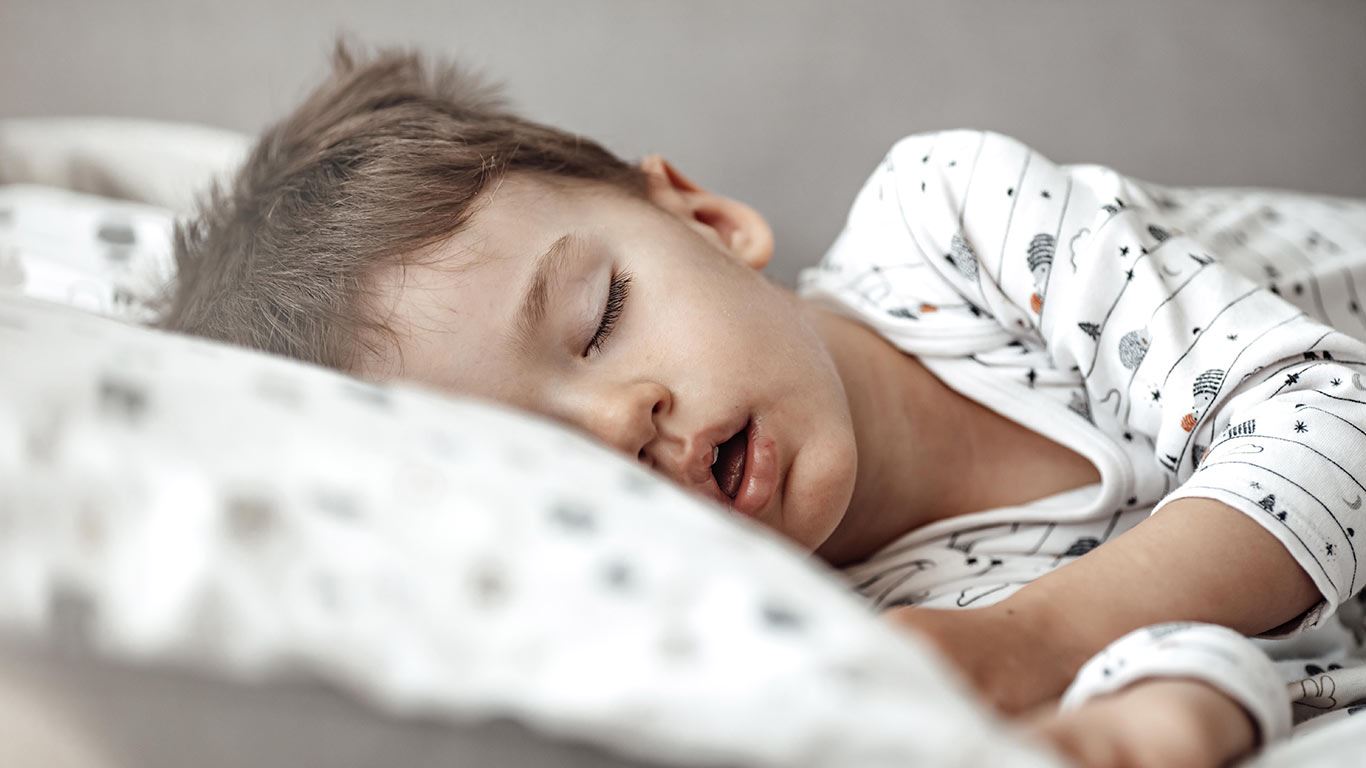Snoring in Children
- Category: Health & Wellness, ENT
- Posted On:
- Written By: Angie Song, MD

It may be a bit unsettling for parents to hear the sounds of snoring coming from the bedroom of a small child. While there’s often no need to worry about snoring that happens occasionally, parents might want to listen in for more frequent or severe snoring. That can be the sign of a problem and disturbed breathing during your child’s sleep.
Snoring occurs in both children and adults when air cannot flow easily through the airway at the back of the throat. As a person breathes in or out during sleep, the tissue around the airway vibrates, causing the noise we know as “snoring.”
Though the reasons for snoring in children may vary depending on age and other health concerns, the most common causes are:
- Enlarged tonsils and adenoids: These are found near the back of a person’s throat. They may look larger or swollen when there’s an infection, such as strep throat. When enlarged, they can block the airway and cause snoring. Typically, this is the most common reason for snoring in children.
- Blocked nasal breathing from enlarged turbinates(the inner lining of nose bones)
- A deviated septum: The septum is made of soft cartilage and bone and divides your nose into two sides. A deviated septum occurs when the nostrils are not separated equally.
- Allergies: The nose and throat can become inflamed by seasonal allergies or by asthma.
- Obesity: Medical studies have determined that overweight children are more likely to snore.
What can be done about childhood snoring?
Otolaryngologists, orEar, Nose, Throat (ENT) specialists may recommend surgery for some children. A child’s tonsils and adenoids get larger until a child is about 6 or 7, and then slowly decrease as they age. If a child snores because of allergies, the affliction may be helped with medication or simple salt water nasal rinses.
When is childhood snoring more serious?
An estimated 10 percent of children who snore may have more serious medical issues, such as obstructive sleep apnea. Pediatric obstructive sleep apnea is a disorder in which a child’s breathing is partially or fully blocked repeatedly during sleep. It is best to get this problem treated as soon as it is discovered. If a child is not getting enough sleep because of abnormal breathing during sleep, it could cause fatigue during the day, behavioral problems, learning difficulties, delayed growth, and obesity. Parents of children with sleep-related breathing disorders may also see that their child is having restless sleep, teeth grinding, bedwetting, and gasping or snorting while sleeping.
A Special Consideration
For some children, snoring may be caused by a deviated septum from a sports injury or other rough-and-tumble childhood activities. A deviated septum can happen fairly easily – even a minor spill or a collision on the playground can damage a child’s septum. When the septum is deviated, you may notice your child has more nasal congestion than usual or has frequent sinus infections. The child may also have frequent nosebleeds or headaches. For these reasons, your pediatrician may suggest further evaluation by an otolaryngologist.
What happens in the ENT visit?
If your child’s pediatrician refers you to an otolaryngologist or ENT doctor, the specialist will examine your child’s airway for obvious abnormalities, such as enlarged tonsils or adenoids. The specialist will also examine the child’s ears.
Some children may even need to undergo a sleep study, particularly if there’s a concern they have obstructive sleep apnea. Your ENT may suggest removing the tonsils or adenoids. If your child has allergies that cause nasal congestion or mouth breathing, an appropriate medication may be prescribed to help.






.jpg)